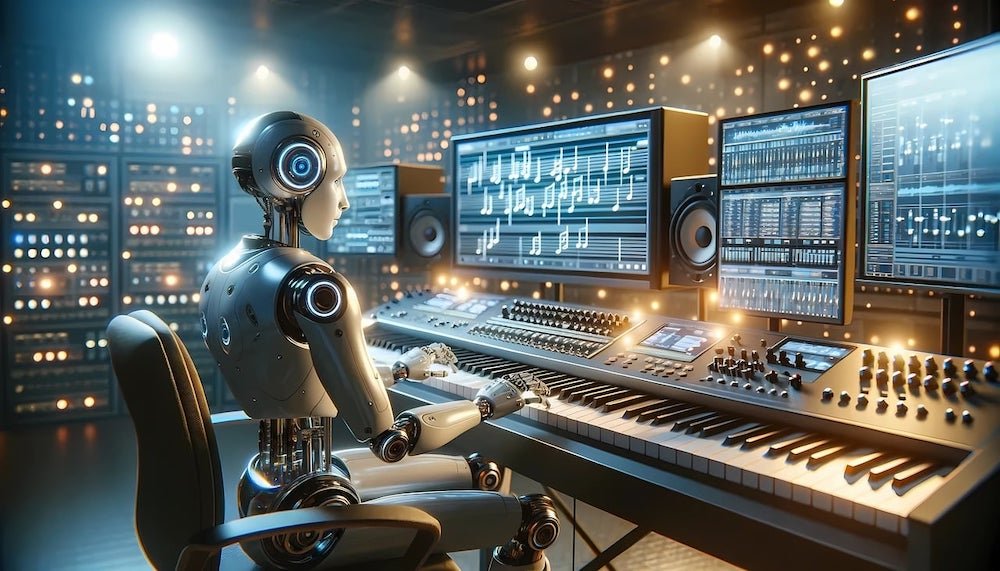
Artificial intelligence (AI) is no longer confined to science fiction or tech labs — it’s now composing symphonies, producing chart-topping hits, and redefining what it means to create music. From songwriting assistants to mastering tools, AI has become an integral part of how artists, producers, and labels approach the art and business of music.
1. How AI is Transforming Music Creation
AI-driven tools like Amper Music, AIVA, and Soundful allow users to compose original tracks in minutes, even without prior musical training. By analyzing massive datasets of melodies, rhythms, and chord progressions, these systems generate new compositions that mimic human creativity.
Musicians are using AI not to replace creativity but to augment it. Artists like Taryn Southern and Holly Herndon have released albums co-created with AI models, using algorithms as collaborators rather than competitors. This marks a new era of “co-creation,” where human emotion meets machine precision.
2. Personalized Music Experiences
AI also tailors music consumption. Streaming giants such as Spotify, Apple Music, and YouTube Music use machine learning algorithms to study user behavior — from skipped tracks to mood-based playlists. These systems build hyper-personalized experiences, ensuring that every listener hears music that fits their unique tastes.
In addition, AI-generated playlists have given rise to “micro-genres,” niche sound categories that reflect mood, weather, or even time of day. This personalization is shaping not only what we listen to but how we discover and connect with artists.
3. Enhancing Production and Mastering
Producing and mastering music traditionally required years of expertise and expensive studio equipment. Today, AI tools like LANDR, iZotope Ozone, and Endlesss automate the mastering process, offering professional-grade results at a fraction of the cost. These tools analyze frequency balance, loudness, and stereo imaging to fine-tune tracks efficiently — making high-quality production more accessible to independent artists.
4. Copyright, Ethics, and Authenticity Challenges
Despite the excitement, AI’s rise brings serious ethical and legal questions. Who owns a song composed by a machine? What happens when AI models are trained on copyrighted material? And how do listeners value “authentic” human expression versus algorithmic creation?
In 2023, the viral “Heart on My Sleeve” track — featuring AI-generated vocals mimicking Drake and The Weeknd — sparked heated debates over intellectual property and artistic identity. Regulators, record labels, and artists are now working to define the legal boundaries of AI-generated content.
5. The Future: Collaboration, Not Competition
The future of AI in music seems less about replacing artists and more about empowering them. AI will likely become a creative partner, handling repetitive tasks like beat-making, sound design, and mastering, while freeing artists to focus on storytelling, emotion, and performance.
Hybrid systems that merge human creativity with AI assistance may lead to entirely new musical genres, interactive live performances, and immersive sonic experiences — blurring the lines between creator and listener.
Conclusion
AI is reshaping the music industry at every level — from creation and production to consumption and distribution. While challenges around ethics and authenticity persist, one thing is clear: music’s evolution is accelerating, and AI is playing a major chord in its symphony.
The harmony between human creativity and machine intelligence may very well define the sound of the future.
